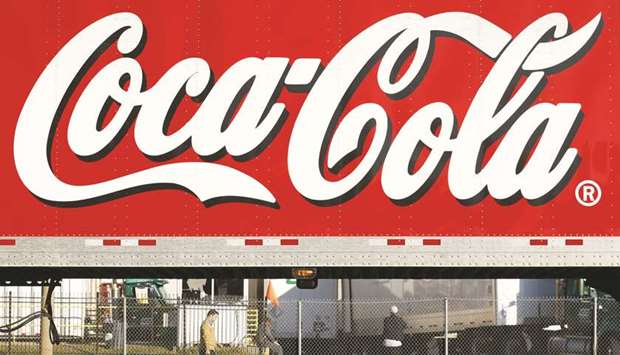Coca-Cola Company is turning to Europe’s deal-hungry bond market as the US soda maker bets on coffee to help counter waning demand for fizzy drinks.
The beverage giant will meet investors across the continent this week, as it considers selling euro notes maturing in two years to 12 years, according to a person familiar with the matter, who isn’t authorised to speak publicly and asked not to be identified. The company also has two single-currency bonds, totalling €3.5bn ($4bn), coming due this year.
Coke is set to enter the bond market a month after completing the $5.1bn purchase of UK coffee chain Costa and days after a lackluster profit forecast sent its shares tumbling the most in more than a decade.
The Atlanta-based company may benefit from euro investors’ appetite for large US corporate sales, which has already helped Marlboro maker Altria Group Inc and International Business Machines Corp sell four- part so-called reverse Yankee deals this year.
A stock-price slump “isn’t good ahead of a new bond issue,” said Thomas Neuhold, a Vienna-based money manager at Gutmann Kapitalanlage, which oversees about €9bn. Still, “if the new-issue premium looks OK, we’re going to put in a small bid.”
Coke will be using the new bonds to refinancing maturing debt, said Scott Leith, a spokesman.
“We appreciate the flexibility that the euro bond market offers in terms of tenors and the added diversification to our investor base,” he said. “Because we have significant revenues in Europe, having euro obligations is also a natural fit to our debt portfolio.”
Europe fund managers have shown strong appetite for new bonds recently, partly because they are looking to deploy cashpiles built up last year when wobbly markets were spurring redemption requests.
These extra reserves are no longer needed as a dovish turn by central banks has helped slow outflows.
US companies have been among the beneficiaries of this cash supply, selling €11.7bn of investment-grade notes already this year – an almost six-fold jump from a year earlier, based on data compiled by Bloomberg. President Donald Trump’s tax reforms also damped 2018 sales. Overall, euro investment-grade corporate volume is up about 40%.
Still, these reserves of cash may be starting to run down after the hectic rush of deals. Gutmann Kapitalanlage’s Neuhold said his fund is increasingly skipping new issues after buying “a lot of stuff since the start of the year.”
Coke, which is 9.4% owned by billionaire investor Warren Buffett, is contending with trendy upstarts and declining soda consumption amid concerns about sugar-related health issues, such as obesity and diabetes.
The company has also struggled to sell bottling operations in emerging markets, a plan designed to help boost its focus on branding and sales, according to S&P Global Ratings.
The Costa deal may offer a new way of boosting Coca-Cola’s growth, even if chief executive officer James Quincey has so far declined to spell out plans for the coffee chain.
Coke also has the fifth-highest investment grade at both S&P and Moody’s Investors Service, and its global reach may appeal to bond investors worried about Europe’s economy.
“If you want to add some euro credit risk, but have a eurozone recession at the back of your mind, one good way of doing so would be through reverse Yankees,” Carlo Putti, an investment specialist at M&G Investments, wrote in a note.

A man walks past a Coca-Cola truck at a distribution centre in Alexandria (file). Coca-Cola is turning to Europe’s deal-hungry bond market as the US soda maker bets on coffee to help counter waning demand for fizzy drinks.
